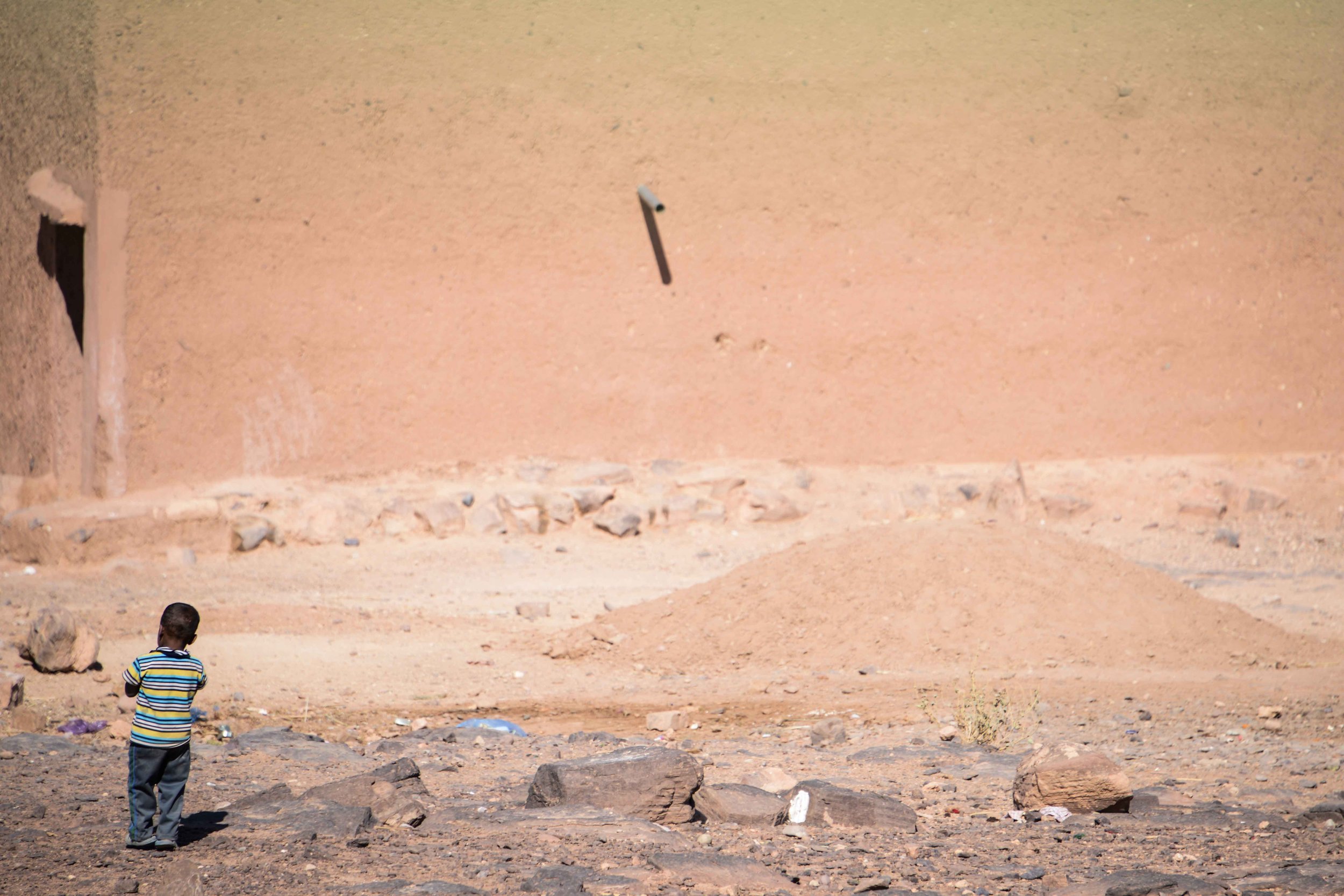
7 areas of world crisis →
Spiritual Confusion
Over 4 billion people (2/3 of the world’s 7.2 billion population) have yet to put their hope in Jesus Christ as their personal savior and the answer to a world in crisis.
Where there is no hope, there is no motivation for the pursuit of solution. In a world without hope people live for the moment and for themselves, abolishing any vision for a better world.
The only antidote to a defeated spirit is one that has been regenerated with authentic faith in the creator.
The solution, therefore, to all world crises hinges upon the proclamation of the gospel both through words and action.
globally
The expansion of authentic Christian churches that will both proclaim and demonstrate the gospel of hope through strategic church planting efforts among every tribe and nation on earth is needed.
Locally
In order to participate in international church planting the church must also express the heart of Jesus through the outward ministry of the Isaiah 61 commission to preach the gospel to the poor, to heal broken hearts and to set captives free. The local church must become an aggressive discipling agency that not only proclaims biblical truth, but practices it throughout their individual communities. Jesus said to start first in Jerusalem before attempting to go to the remote parts of the earth.
7 areas of world crisis →
World hunger
In today’s world, nearly 1 billion people are malnourished. Half of the world’s population lives on less than $2 a day, and many of those people are city dwellers who must purchase the food they feed their families.
As the global population grows and the earth’s resources begin to diminish, world hunger teeters on the brink of disaster. Jesus warned that in the last days there would be great famines and pestilence, but he also said that we are blessed if we feed the hungry.
In his dissertation in Matthew 25 he told us that giving water to the thirsty and food to the hungry was criteria for separating “sheep from goats”; true believers from nonbelievers.
globally
The i-61 churches are those that respond to the hungry worldwide by doing what they can to alleviate the issue. In today’s world we can no longer just give fish to someone who is hungry.
We must also teach them how to fish for themselves. Not simply giving out bread, but when possible teaching and helping the hungry to grow the resources to make their own flour. Agriculture is on the forefront of the gospel if we heed the words of James, “if a brother or sister is poorly clothed and lacking in daily food, and one of you says to them, ‘Go in peace, be warmed and filled,’ without giving them the things needed for the body, what good is that? So also faith by itself, if it does not have works, is dead.”(James 2:15-17)
Locally
The i-61 churches are those who participate locally through efforts such as food pantries, community garden projects, feeding the local homeless or partnering with organizations in their community that do.

7 areas of world crisis →
undeveloped leadership
The welfare of every country on earth is dramatically impacted by the leadership that governs it. In nations that are known for maintaining continual states of chaos, violent conflict and oppressive poverty, there can usually be found a common denominator: an incompetent, self-seeking or corrupt leadership at its head. On the other hand, countries that thrive tend to be those with governments that truly care for the welfare of their people above personal power or self-gain. Corrupt leadership is at the very root of this global crisis. The turning point for nearly all global decline is securing righteousness at the head of every nation; a righteousness that can only come as a result of an authentic fear of God.
globally
Christ-like leadership begins at the grassroots of society. Leaders are both born and made, and their developmental process will determine the future ethics and morality that will impact the choices they will make. For this reason it is essential that a nation is influenced with Christian values from its grassroots, especially among its future or present clergy. Only then will the Christian churches have effective influence in their communities and nations.
The i-61 solution to this dilemma is not a quick fix, but rather one that has a long-range vision and a willingness to begin the process of early leadership development by participating in the development of children and youth. For example, teaching young people to set goals and objectives for their future lives based on biblical truth and helping them to achieve those goals. This is an essential piece of the process if they are to be elevated out of extreme poverty and achieve positions of social influence. Ongoing leadership development programs for all ages are critical in abolishing the practices of immoral and corrupt leadership.
Locally
In a similar way, leadership development is equally import at the local church level. The need to train children and young people the skills of leadership should exist at every level in the local church of the developed world as well. Leadership training should and must exist within the local church not only with future foreign missions in mind, but for the sake of our nation as well.
7 areas of world crisis →
Educational Inequalities
At a time when education is rapidly becoming a prerequisite for human survival, nearly one billion people have entered the 21st century unable to read their own names; 544 million of them are women. This fact is an atrocity considering that less than 1% of the money spent internationally on weapons of war each year could educate every child on earth.
globally
Education is one of the most effective ways to access hard to reach people groups and communicate the written Word of God to them; specifically, teaching English as a second language. Nearly every indigenous group on earth welcomes the opportunity to educate their children and youth, even when the gospel is attached.
As we attempt to plant churches around the globe our vision must be long range, realizing that many of our future pastors and leaders are presently children and youth who need to learn to read and write.
Education not only is a means to elevate the condition of living among the poor, but a means to build long-term meaningful relationships that are based in Christ.
Locally
The i-61 churches are those that see the need to improve the condition of life and set captives free from the hopelessness of illiteracy. This work must not be reserved for the developing world only but should begin at home, especially among refugee populations who have been relocated from the developing world into societies where education is a prerequisite for functional integration.

7 areas of world crisis →
Environmental decline
As the world’s environmental condition falls into decline so does the condition of all human life. With a rapidly approaching population of seven billion people, global resources such as energy, clean drinkable water, productive farmable lands and ocean fisheries become overly stressed.
In today’s world more than one billion people walk at least three hours a day to collect a 5-gallon bucket of water. Entire Third World towns and villages are annually buried in mudslides due to deforestation as a result of charcoal production and illegal lumbering.
These atrocities can be curtailed as the church begins to translate Jesus’ mandate to care for the poor through sustainable programs and training.
It is no longer enough to send aid to the poor; they must also learn methods of environmental sustainability.
globally
The i-61 churches are those that incorporate mercy and compassion ministry into their international missions work. They are churches that equip and motivate people to go out into the world with skills that translate the commission of Jesus into hands-on work. They are churches that participate in such endeavors as fresh-water well development, organic agriculture projects, reforestation and sustainable energy programs.
Locally
The i-61 churches are those that understand the biblical responsibility for creation care, embrace the principles of environmental stewardship and work towards transforming their local church facilities into energy efficient structures. They are churches known in their communities for their positive attitudes and their promotions of clean and healthy environments.
7 areas of world crisis →
Poor Health & Disease
Again, children seem to be the most vulnerable when it comes to any kind of world crisis. Health and disease are no exceptions.
Two thousand children under the age of 15 are being infected with HIV worldwide every day, while nearly two million die every year as a result of diseases caused by unclean water or poor sanitation (a rate of five thousand every day).
Many of these death-related illnesses do not need cutting-edge medical assistance to be solved. They just need willing Christians who have been equipped to administer basic care and training.
globally
The i-61 solution for making a major difference in world health crisis is twofold. First, to develop mission medic training programs to teach as many as are willing in basic medical care and sanitation which can then be included in local churches’ mission outreach programs.
Second, to mobilize the thousands of existing professional medical and dental workers that are throughout local Christian churches nationwide. Much of this solution is simply a matter of creative administration and organization of already existing laborers who are looking for a place to use their giftings.
Locally
The i-61 churches are those that are meeting the health crisis needs within their local communities by doing such things as establishing free medical clinics and other forms of medical outreach using the volunteer efforts of doctors, physician assistants and nurses within their own congregations. Another resource is to utilize volunteers to help transport and assist local refugees and the elderly who receive aid through government programs. It is important to remember that churches across America were originally granted nonprofit and tax-exempt status because they were considered and expected to be the national welfare agencies before government programs existed.

7 areas of world crisis →
human injustice
In today’s world the issues of inhumanity and injustice are escalating as the value and sanctity for life declines. Issues of human trafficking for forced labor and sexual exploitation, child soldiering, and mandatory abortion are all on the rise. Put in perspective, 400 years of the European African slave trade (responsible for providing slavery in America during the 1700s and 1800s) unjustly imprisoned some 12 million people.
Although modern history gives William Wilberforce the credit for ending this atrocity, in today’s world 800,000 people are illegally trafficked across borders every year, fifty percent of which are minors. Although it is impossible to know how many for sure, it is estimated that some 10 million children are victims of the sex slave industry worldwide. Children are always the most at risk on nearly every front of depravity, especially where there is ethnic cleansing or violent conflict. Thousands upon thousands are orphaned as a result of the African AIDS crisis, international drug abuse and incarceration. According to the UN there are 200 million children living and working on the streets due to an escalation of poverty, war and AIDS.
globally
The issues of social injustice are so overwhelming that we as Christians can become paralyzed even to the point of doing nothing.
We forget three important things; 1) we serve a God that can do all things; 2) there is great power in numbers and unity when the church commits to join forces; and 3) we serve a God who not only hates injustice, but has commissioned his people to do something about it.
The i-61 solution is to respond based on the above mentioned. It is our goal to join forces with like-minded churches and Christian organizations that believe in faith that God will lead us into creative solutions to these issues. We must first be activists that aggressively educate and equip Christians everywhere concerning the atrocities that face our world, helping them capture God’s heart in these matters. Finally, together we must take what we learn and incorporate it into our international missions programs.
Locally
Our local prisons are overflowing with parents whose children who have been put at great risk. Eighty percent of those who are incarcerated have a history of drug abuse and nearly all were involved in some form of violence, often leaving children behind in dire situations.
We are told that six percent of all incarcerated women are pregnant and will be releasing infants into the hands of other guardians. There is much we the church can and should be doing for the sake of those children who have been put at extreme risk. The i-61 churches are those that promote ways to bring relief to local at-risk children through various means such as foster parenting and participating in Angel Tree (providing Christmas presents for the children of the incarnated).
“Ut dui quam, dignissim sed nisl sed, viverra tempor ipsum. Sed a eros nec leo euismod eleifend sit.”
— Quote Source


